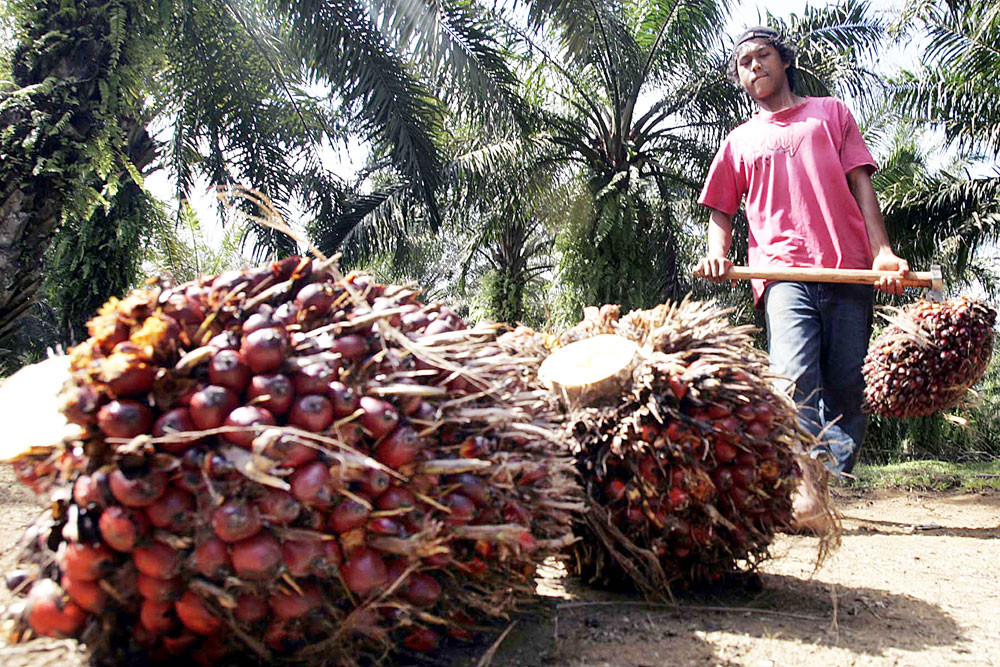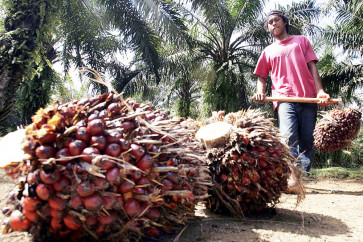Popular Reads
Top Results
Can't find what you're looking for?
View all search resultsPopular Reads
Top Results
Can't find what you're looking for?
View all search resultsIndonesia opposes EU’s planned two-tier food safety standards for vegetable oils
As Indonesia’s third largest palm oil market after China and India, Europe’s consumption behavior is pivotal to the country’s palm oil industry.
Change text size
Gift Premium Articles
to Anyone
I
ndonesia, the world’s largest palm oil producer, has labeled the European Union’s plan to impose different food safety standards for palm oil compared to other vegetable oils as discriminatory
The EU Commission plans to issue later this year a regulation that will limit the concentration of 3-monochloropropane diol (3-MCPD) – a chemical byproduct toxic to the kidneys and testes in high dosages – in vegetable oils sold within the bloc.
Concentrations will be limited to 2.5 milligrams per kilogram (mg/kg) for palm, olive pomace and nut oils and 1.25 mg/kg for rapeseed, maize, sunflower and soybean oil.
Indonesia’s Coordinating Economic Minister Airlangga Hartato said in Jakarta on Friday that the proposed “discriminatory” two-tier system would make EU consumers “perceive palm oil as bad” compared to other vegetable oils.
“We have strongly voiced our position to the EU, as the EU plans to make a decision on the proposed two-tier maximum levels of 3-MCPD today in Brussels. Besides concerns about exports, the issue of the 3-MCPD safety limit is also crucial to safeguarding the domestic market,” he said.
Indonesia is fearful the regulation will put added pressure on the domestic palm oil industry. The country’s crude palm oil (CPO) exports to the EU dropped 3.8 percent year-on-year (yoy) to 4.6 million tons in 2019, after the EU began phasing out palm oil-based biodiesel consumption in March 2019.
As Indonesia’s third largest palm oil market after China and India, Europe’s consumption behavior is pivotal to the country’s palm oil industry, which contributed $19 billion in exports to Southeast Asia’s largest economy last year and employed more than 15 million people.


















